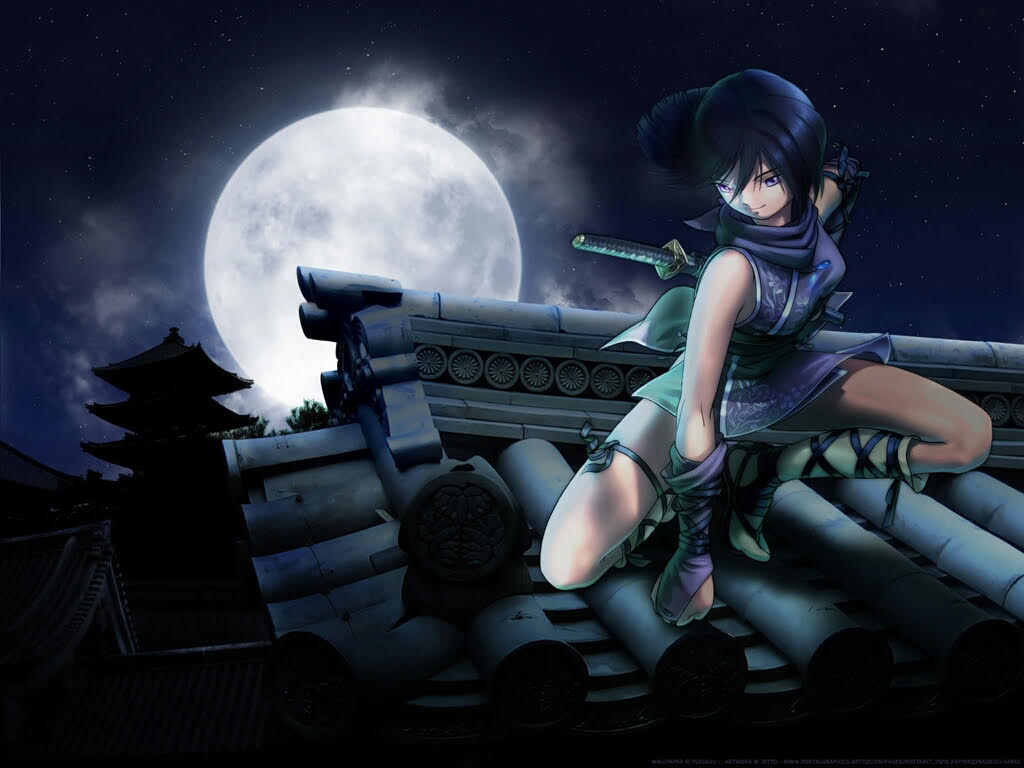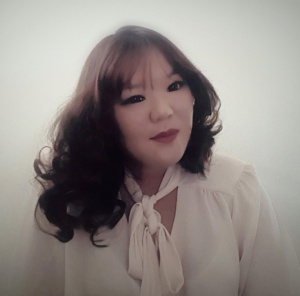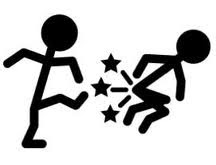
Guest Post: Asian Representation: The Lack Thereof
Asian Representation: The Lack Thereof
By Erin Yoshikawa
Bad-assery does not have a gender. It does not have a color. It does not have a race, body-type, age or a sexual orientation.
 Logically, this is truth. As a society with access to a million different viewpoints, we are gifted with examples of heroism in many forms. From the daily good deeds enacted by the merest child to moments of bravery in battlefields thousands of miles away, it’s easy to see how non-discriminatory bad-assery can be throughout the world. You don’t need muscles or a college degree to be a hero. You don’t need anyone’s blessing or permission to be epic.
Logically, this is truth. As a society with access to a million different viewpoints, we are gifted with examples of heroism in many forms. From the daily good deeds enacted by the merest child to moments of bravery in battlefields thousands of miles away, it’s easy to see how non-discriminatory bad-assery can be throughout the world. You don’t need muscles or a college degree to be a hero. You don’t need anyone’s blessing or permission to be epic.
If this is true, then why do we see a lack of diversity in entertainment? Hollywood is guilty of it, having a long history of white washing characters when it suited the budget or marketing campaign. The same year Flower Drum Song made its big screen debut, Breakfast at Tiffany’s also premiered. One film highlighted a cast made entirely of Asian actors portraying a sweet but slightly racist view of Asian life in America set to music by Hammerstein. The other features a fumbling, ineffective landlord played by Mickey Rooney with fake snaggle teeth and a cheap summer kimono.
I’m willing to admit the social environment was different at the time: Asian-Americans were still clawing their way to equality alongside African-Americans. They were still a marginalized population piecing their identity back together after the internment camps of World War II. Americans of other races still viewed Asians as outsiders. Representation in the media reflected the collective sentiment effectively, revealing the consensus of Asians as the unwanted strangers in a strange land.
Present day, present time: Asians are finally taking a stand and carving a place in America for themselves. They are no longer afraid to speak out or rock the boat. Gone are the days of loathsome acceptance condensed to a short phrase, Shikata ga nai.
It cannot be helped.
It can be helped. You need to rock the boat when there are rats eating your catch. The greater good outweighs potential embarrassment.
They demand respect and an equal voice in politics and culture. But one thing continues to elude us: representation in media devoid of racist stereotypes.
It bothers me when I see an Asian man portrayed as meek and shy. It hurts to see an Asian woman portrayed as a geek that just needs to find a “real man” to unlock the hidden sexpot behind her glasses and textbooks. My heart hurts every time I see an Asian being rescued, when they could have rescued themselves. In fact, did that person need to be rescued at all?
All cultures around the world have stories of bravery and cunning. Asians are no different. China, Korea, Japan, Thailand, and Cambodia all have rich folklore depicting warrior men and women. They are brave citizens who became heroes through acts of undeniable bad-assery that transcended color and gender. Fa Mulan, Tomoe Gozen, and Khun Muk were revered in cultures that generally frowned upon women in combat leadership roles. While each retained traditional gender ideals, they exemplified bravery in the face of male oppression when called to protect the things that mattered most.
Regardless of motive, a badass is a badass. Within their own cultures, Asians can be and do anything they want. While we still see weak men and meek women on the silver screen, they are equally balanced by female villains in positions of power, or men who aren’t afraid of their emotions while attempting to stand strong in the face of adversity. Japanese and Korean animation bring fantastic women who don’t need men to take care of them. Children soldier on in the face of misfortune and war.
In a world where all stories are available to us always, why don’t we see more persons of color in fiction? More to the point, why don’t we see more diversity in fiction from English-speaking countries? When you see a person of color, they are often fetishized and pigeon-holed into small roles that accentuate the main (and white) character. In fantasy, one rarely sees black or Asian-inspired characters taking the lead in a journey to save the kingdom. Or, if there are persons of color, they are reduced to disposable villains or territories to be conquered. It can be argued that one writes what they know. But in fantasy, when the writer builds the entire world, persons of color could easily be given a place of equal power. The world is connected. Ignorance is no excuse for excluding persons of color.
In America and other English-speaking countries, subgenres have emerged. Written by persons of color for persons of color. They range from urban fantasy to romance, historical fiction to post-modern thrillers. Each features a protagonist accessible to the target audience. What’s more: the characters are resilient and often gender is more equally represented. They give equal respect to all represented cultures and ethnicities without shying away from the bitter realities each face in the presence of racism and intolerance.
Within the current political climate, we find people who claim to be tired of politically correct conversation. They refuse to acknowledge the need for diversity within the media. They claim it is a non-issue. To leave race unacknowledged, we silently enable racism. But therein lies the rub.
In writing, ethnic representation does not need to be overt. It can be as simple as leaving certain details to the imagination. The reader can decide for themselves what color their favorite character is, or leave them colorless. They can picture Emma Watson as Hermione forever, or allow the possibility of Noma Dumezweni to be the face of a brilliant girl who went on to be a brilliant woman, magic notwithstanding. Some may view the concept as a cop-out, but when writing fantasy one needs to allow room for interpretation. A writer’s world only comes to life when another can picture it for themselves. In a person’s head, a character can look completely different from the author’s idea, regardless of the description given within the text. Some ask for explicit descriptions of race. Personally, I concur with the latter idea. I want to know exactly what the character looked like in the writer’s mind. But in fantasy, when dealing with worlds unlike ours, that simply isn’t possible without removing the reader from the story.
Also, no one cares that Willem Dafoe is the face of inspiration for every older white male I write.
Now you know. Good luck trying to get his face out of your head.
As an Asian cisgender heterosexual(mostly) woman, I will never know what it’s like to be a sixty-something grizzled knight with a penchant for alcohol and whining. I don’t really know what goes through a man’s head when faced with a robotic cat and a world made of plastic. But that doesn’t stop me from including the character’s voice. I will never know what it’s like to be an orc, a dragon, or a man. I will never truly know the struggle of being a small boy trying to live in a world of unrealistic feminine expectations. But I can treat each character as an individual, with its own views and motivations. No character is perfect, and surely someone will take exception to the way each is written. But I can learn and assimilate new ideas, continue to push for representation within my own work, and remain proud of my own voice as it evolves. So long as one seeks to expand their understanding of things beyond their narrow scopes, we can continue to see growth in literature.
Author Bio
 Erin Yoshikawa is a Scorpio born in the year of the rat. She currently resides on a small rock in the middle of the Pacific Ocean with one child and a plethora of native fauna to aid in the writing process. One time rock and roll queen, soup seller, grave digger, and world traveler, Erin enjoys a quiet existence working for The Man while not giving him the satisfaction of killing imagination and dreams. She has contributed to a few anthologies. Nightmares Rise will be her first full-length novel with more to come. Eventually. She hopes.
Erin Yoshikawa is a Scorpio born in the year of the rat. She currently resides on a small rock in the middle of the Pacific Ocean with one child and a plethora of native fauna to aid in the writing process. One time rock and roll queen, soup seller, grave digger, and world traveler, Erin enjoys a quiet existence working for The Man while not giving him the satisfaction of killing imagination and dreams. She has contributed to a few anthologies. Nightmares Rise will be her first full-length novel with more to come. Eventually. She hopes.


